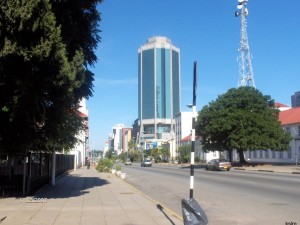Following a Supreme Court ruling last week, Zimbabwe’s banking sector is bracing itself to pay back some $400m seized from client accounts in 2007.
Standard Chartered was ordered to reimburse Chinese-owned Shougang International $45,000, which was seized on the order of Reserve Bank of Zimbabwe (RBZ) to prevent economic collapse. Economist John Robertson said the ruling was disturbing, and if not challenged might set a bad precedent whereby all banks that had their accounts raided by the central bank could be sued by clients.
“In 2009, the RBZ admitted that it owed depositors over $1bn and you can imagine if all the people who (are) owed this money approach the courts,” he said.
In his ruling, Justice Vernanda Ziyambi indicated that Standard Chartered had transferred the depositor’s funds at its “own peril” and had an obligation to pay up upon its client’s request.
“The payments to the RBZ were made at [Standard Chartered’s] own risk and did not affect its obligation in law to pay its debt to [Shougang International] on demand.”
Bankers Association of Zimbabwe president George Guvamatanga said the court order had created “uncertainty” in the banking sector, while an executive at MBCA bank, a subsidiary of South Africa’s Nedbank, said the case was creating a “trying time” for the sector.
“We are all in a difficult space; an injury to one is an injury to all. The court order should have been extended to the RBZ, because banks were complying with a directive from the central bank,” said the executive, who asked not to be named as he is not authorised to speak to the press.
It is unclear if Standard Chartered will approach Zimbabwe’s constitutional court to try to overturn the Supreme Court ruling.











